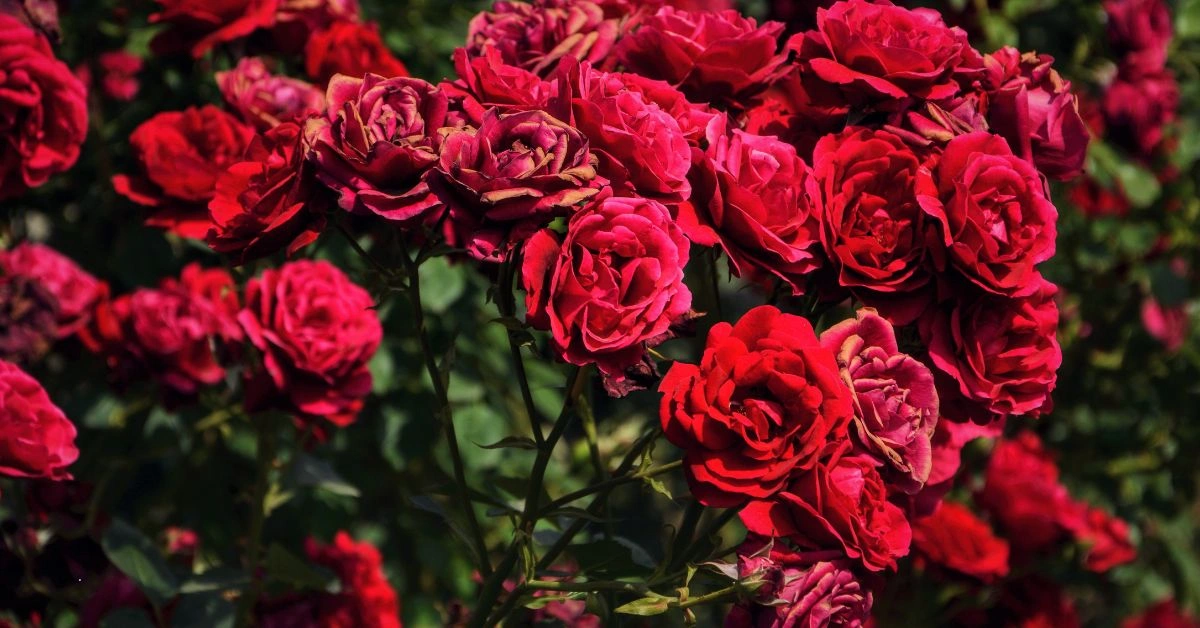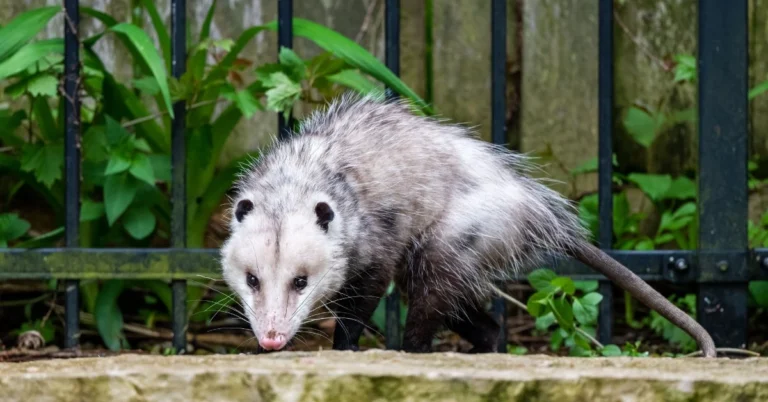Preserving Heritage and Nature: The King’s Roses NWBKA Initiative
The King’s Roses NWBKA is a unique initiative that connects royal heritage with ecological conservation. It combines the elegance of royal rose gardens with the essential role of bees in nature. This project stands out as a tribute to both tradition and environmental responsibility.
Roses have long been symbols of beauty, love, and power. In British history, they hold a special place, especially with their connection to royalty. The King’s Roses NWBKA takes this cultural significance and adds a modern twist by linking it to sustainability.
At its heart, the initiative promotes beekeeping and biodiversity. Bees are vital to our ecosystems, and their decline poses a serious threat to the planet. Through this project, efforts are made to create environments where bees can thrive, while also preserving the charm of royal rose gardens.
The NWBKA, or North West Beekeepers Association, plays a key role in this endeavor. They bring expertise and passion to ensure the success of the initiative. Together, the organization and the project represent a perfect blend of tradition and forward-thinking conservation.
This blog will explore how this initiative honors history while championing sustainability. It will take you through the legacy of royal roses, the importance of bees, and the art of preserving both. Most importantly, it will show how initiatives like this can inspire others to take action for the environment.
This project is more than a conservation effort; it is a story of beauty, balance, and care for our shared future.
| Aspect | Facts | Figures |
|---|
| Royal Heritage and Roses | Roses symbolize beauty, love, strength, and royalty in British culture. | Tudor Rose symbolizes unity and peace. |
| Connection to Bees | Bees pollinate roses, ensuring their growth and reproduction. | Decline in bee populations threatens ecosystems. |
| NWBKA’s Role | North West Beekeepers Association brings expertise in sustainable beekeeping. | Hosts workshops and events regularly. |
| Environmental Importance | Bees are essential for global food supplies and ecosystem balance. | Pollinate over 75% of flowering plants. |
| Conservation Efforts | Combines rose cultivation with bee-friendly practices. | Supports biodiversity, enhancing ecosystems. |
| Sustainable Practices | Uses organic methods like natural fertilizers and pest control. | Reduces need for chemical interventions. |
| Community Involvement | Workshops teach beekeeping and rose gardening skills. | Volunteering opportunities available. |
| Challenges Faced | Climate change, urban development, and habitat loss threaten bees and roses. | Innovative practices counteract issues. |
| Bee-Friendly Home Practices | Planting lavender, sunflowers, wild roses; avoiding harmful chemicals; creating bee hotels. | Even small spaces like patios can help. |
| Global Impact | Protecting pollinators enhances global biodiversity and food security. | Affects numerous plant and animal species. |
| Call to Action | Encourages donations, awareness, and adoption of sustainable practices. | Every action contributes to biodiversity. |
The Legacy of Royal Gardens: History and Symbolism
The Timeless Beauty of Roses in British Culture
Roses have been a part of British history for centuries. They symbolize love, beauty, and strength and are often associated with royal traditions. The famous Wars of the Roses, between the Houses of York and Lancaster, highlights their historical significance.
Royalty has always cherished roses as symbols of elegance and refinement. The Tudor Rose, combining red and white petals, represents unity and peace. This legacy continues to inspire conservation projects across the UK.
The Birth of a Unique Heritage Project
This initiative was established to honor the rich heritage of royal roses. It blends the cultural importance of these flowers with a mission to support nature and biodiversity. By connecting horticulture and ecology, it adds a modern layer of relevance to this historical symbol.
The North West Beekeepers Association (NWBKA) plays a pivotal role in this effort. They bring their expertise in sustainable beekeeping practices to ensure the success of the project. Together, they preserve the traditions of royal rose gardens while promoting pollinator conservation.
The Symbolism of Roses and Bees
Roses and bees share a natural harmony, both thriving in biodiverse environments. Bees pollinate flowers, including roses, ensuring their growth and reproduction. This connection makes the project a fitting tribute to both natural and cultural heritage.
The initiative celebrates the beauty of roses while addressing the pressing need for pollinator conservation. By linking these two symbols of life and growth, it creates a meaningful legacy. It is a modern-day reminder of the delicate balance between history and the environment.
Beekeeping and Biodiversity: A Conservation Triumph
The Vital Role of Bees in Ecosystems
Bees are essential pollinators for plants, flowers, and crops. Without them, many plants would struggle to reproduce and survive. They play a critical role in maintaining the balance of ecosystems and supporting global food supplies.
In recent years, bee populations have faced serious threats. Habitat loss, pesticides, and climate change are some of the biggest challenges. Protecting bees is now more important than ever for the health of our planet.
How This Project Supports Pollinators
The initiative combines beekeeping with rose cultivation to create a thriving environment for pollinators. By planting roses and other bee-friendly plants, the project provides food and shelter for bees. This helps restore habitats that are crucial for their survival.
The NWBKA also promotes sustainable beekeeping practices. They educate local communities on how to care for bees responsibly. This ensures that both wild and managed bee populations can coexist and flourish.
The Impact on Biodiversity
The effort doesn’t just benefit bees; it also enhances biodiversity as a whole. A healthy bee population supports the growth of a wide range of plants and flowers. This, in turn, attracts other species like butterflies, birds, and small mammals.
By prioritizing biodiversity preservation, the project helps strengthen local ecosystems. It creates a ripple effect that benefits all forms of life in the area. This shows how a small, focused effort can lead to big environmental improvements.
A Conservation Model for the Future
This initiative sets an example for combining heritage and sustainability. It proves that conservation can go hand-in-hand with cultural preservation. By protecting bees and supporting biodiversity, the project paves the way for a greener future.
The Art of Cultivating Royal Roses and Sustaining Tradition
The Legacy of Royal Rose Gardens
Royal rose gardens have long been symbols of elegance and care. These gardens are not just decorative; they tell stories of history and tradition. This effort continues that legacy by blending beauty with purpose.
Roses grown in these gardens reflect centuries-old horticultural practices. They are carefully selected for their fragrance, color, and resilience. These roses symbolize the enduring connection between heritage and nature.
Sustainable Rose Cultivation Practices
The initiative prioritizes sustainability in its rose cultivation. Organic methods are used to reduce the impact on the environment. For example, natural fertilizers and pest control methods protect the plants while keeping the soil healthy.
Bees play a vital role in this process by pollinating the roses. This natural partnership eliminates the need for chemical interventions. The result is a thriving garden that supports both flowers and pollinators.
The Role of Local Beekeepers and Communities
Local beekeepers are key contributors to this initiative. They provide expertise on managing bee populations and ensuring their health. By working closely with the NWBKA, they help maintain the delicate balance between roses and bees.
Communities are also encouraged to participate in this project. Workshops and events teach people about rose gardening and beekeeping. This shared effort strengthens the connection between people, nature, and tradition.
Challenges in Maintaining the Balance
Cultivating royal roses sustainably comes with its challenges. Climate change and urban development can threaten both roses and bees. The project addresses these challenges through innovation and community engagement.
By staying true to tradition while adopting modern solutions, the effort overcomes these obstacles. This ensures that the legacy of royal roses continues for future generations.
Looking Forward: How You Can Support and Get Involved
Why Your Support Matters
Bees and biodiversity preservation are essential for a healthy planet. Projects like this rely on community support to succeed. By contributing, you help protect pollinators and preserve a unique part of history.
Your involvement ensures that future generations can enjoy thriving gardens and balanced ecosystems. Supporting this initiative also promotes sustainable practices. Together, small actions can make a big difference.
Ways to Support the Mission
One of the simplest ways to help is by spreading awareness. Share the story of this conservation effort with friends, family, and on social media. Raising awareness inspires others to take action for pollinators and environmental sustainability.
You can also contribute directly by donating to the NWBKA. These funds support bee habitats, educational programs, and sustainable gardening efforts. Every contribution helps sustain the initiative and its mission.
Join Workshops and Events
The NWBKA regularly hosts workshops and events. These sessions teach people about beekeeping, rose gardening, and biodiversity preservation. They are a great way to learn new skills and connect with like-minded individuals.
Volunteering is another way to get involved. Help with planting, garden maintenance, or community outreach. Your efforts make a tangible impact on the success of the project.
Adopt Bee-Friendly Practices at Home
You can also support bees by creating a pollinator-friendly garden at home. Plant flowers that attract bees, like lavender, sunflowers, and wild roses. Avoid using harmful chemicals that can harm pollinators.
Even small spaces like balconies or patios can become bee havens. Providing clean water sources and bee hotels also makes a big difference. These simple actions help extend the initiative’s mission into your own community.
A Call to Action for a Sustainable Future
This project is more than a conservation effort—it is a movement. It reminds us that heritage and sustainability can go hand in hand. By supporting this mission, you contribute to a greener, healthier, and more beautiful world.
Take a step today to help protect bees, roses, and the legacy they represent. Every action, no matter how small, adds to a collective effort for positive change. Let’s preserve this delicate balance of tradition and nature together.
Conclusion
The fusion of royal rose gardens with beekeeping and biodiversity conservation represents a powerful blend of tradition and modern-day environmental responsibility. This initiative serves as a reminder that even the most cherished cultural symbols can evolve to address the pressing environmental challenges we face today. By nurturing the delicate relationship between bees, flowers, and heritage, we not only preserve a piece of history but also create a sustainable future. The support of local communities, beekeepers, and individuals plays a vital role in ensuring the success of these efforts. Every action taken, no matter how small, contributes to the health of our ecosystems and the preservation of our natural heritage. Let’s unite in this mission to protect the beauty, balance, and biodiversity that sustains our world.
Why are bees so important to the environment?
Bees are vital pollinators for many plants, flowers, and crops. They help ensure the growth and reproduction of these plants, which is crucial for maintaining biodiversity and global food supplies. Without bees, many ecosystems would be severely impacted.
How can I support this project without directly donating?
You can spread awareness by sharing information about the project with your community and on social media. You can also participate in workshops and events or volunteer to help with garden maintenance and community outreach. Supporting bee-friendly practices at home also contributes to the cause.
What are bee-friendly practices I can adopt at home?
Plant flowers like lavender, sunflowers, and wild roses that attract bees. Avoid using harmful chemicals that may harm pollinators. Create water sources and bee hotels in your garden, even in small spaces like balconies or patios, to provide a safe haven for bees.
How do roses and bees work together in the garden?
Bees pollinate roses and other flowers, helping them grow and reproduce. This natural partnership promotes a healthy garden ecosystem by ensuring the plants’ survival without relying on chemicals or pesticides.
Can I get involved with local beekeeping activities?
Yes! Local beekeepers and the North West Beekeepers Association offer workshops, events, and volunteer opportunities to help individuals learn about beekeeping and sustainable gardening practices. These events are great for anyone interested in contributing to conservation efforts.
What challenges does this initiative face?
Climate change, urban development, and habitat loss are some of the main challenges the initiative faces. However, the project is working to overcome these obstacles through community engagement, innovation, and sustainable practices.
How does supporting this initiative benefit future generations?
By supporting this project, you contribute to the preservation of biodiversity, the protection of pollinators, and the continued legacy of royal rose gardens. These efforts ensure that future generations can enjoy thriving ecosystems and rich cultural traditions.







